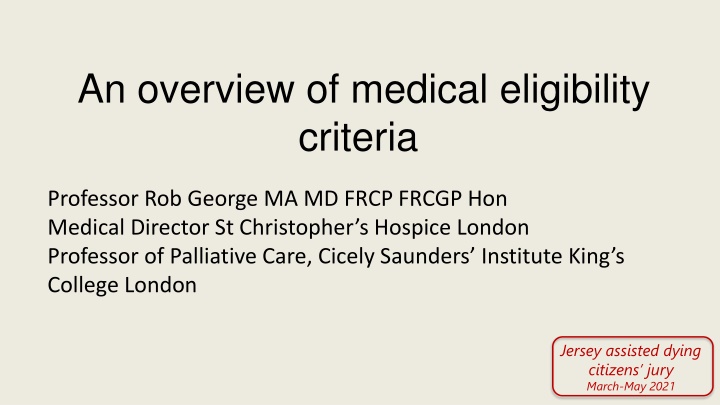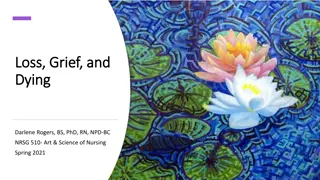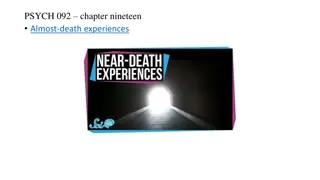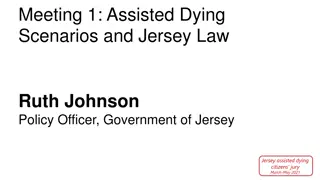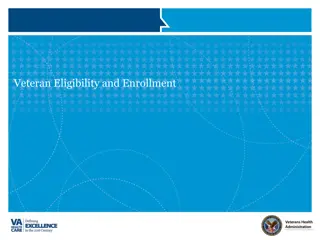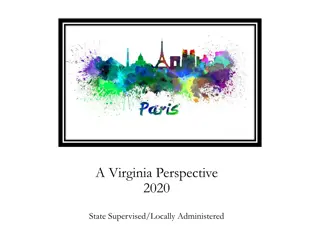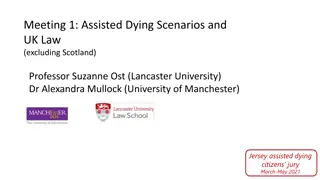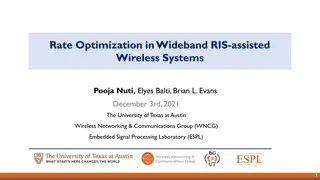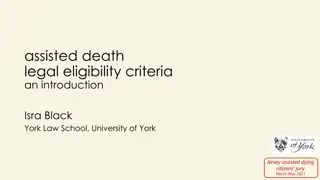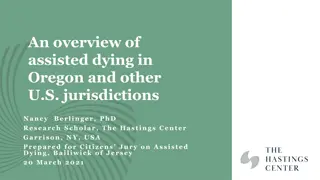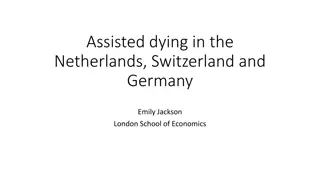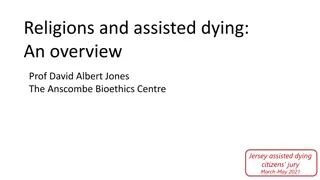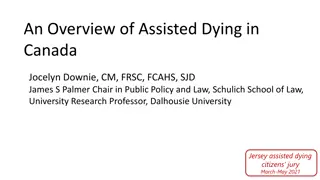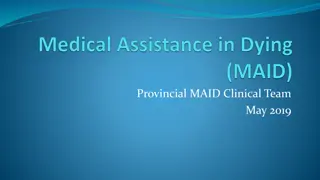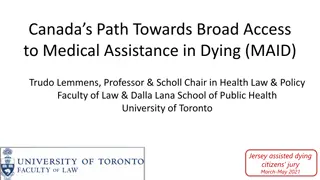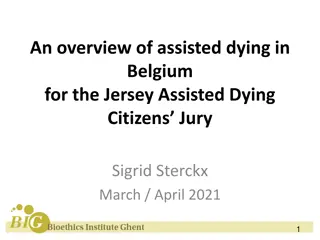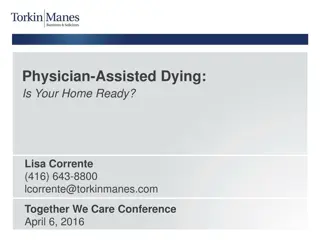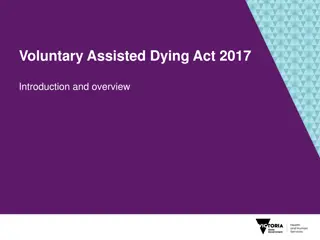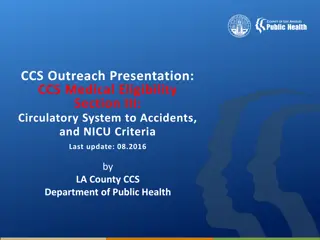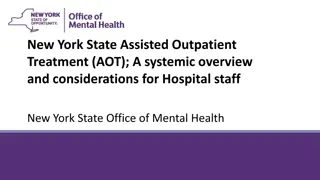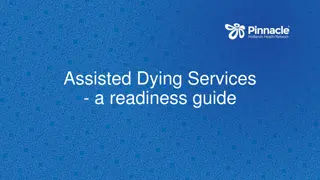Insights into Medical Eligibility Criteria for Assisted Dying
Delve into the nuanced considerations surrounding assisted suicide and euthanasia through the lens of medical eligibility criteria, exploring questions on societal implications, definitions of dying, pain assessment, mental states, and the complexities of discrimination in end-of-life decisions.
Download Presentation

Please find below an Image/Link to download the presentation.
The content on the website is provided AS IS for your information and personal use only. It may not be sold, licensed, or shared on other websites without obtaining consent from the author.If you encounter any issues during the download, it is possible that the publisher has removed the file from their server.
You are allowed to download the files provided on this website for personal or commercial use, subject to the condition that they are used lawfully. All files are the property of their respective owners.
The content on the website is provided AS IS for your information and personal use only. It may not be sold, licensed, or shared on other websites without obtaining consent from the author.
E N D
Presentation Transcript
An overview of medical eligibility criteria Professor Rob George MA MD FRCP FRCGP Hon Medical Director St Christopher s Hospice London Professor of Palliative Care, Cicely Saunders Institute King s College London Jersey assisted dying citizens jury March-May 2021
An exceptional tangle Two overall questions Four specific question 1. Is it right for society to legalise assisted suicide or euthanasia (if it is confined to the dying)? 2. Who should do it? the link to dying means we assume them to be doctors on the evidence this is the worst option 1. What do we mean by dying? 2. Are pain, suffering and intolerability important & feasible criteria? 3. What about mental states? 4. What about discrimination and vulnerability?
What do we mean by dying? Diagnosis - what probability, not certainty About 1:20 post mortems show treatment was for the wrong condition I and my colleagues see people every year, labelled as dying, who are curable Prognosis - when is only guesswork Days to weeks? we re reasonable Weeks to months? we re hopeless A prognosis of 6 months without treatment (Oregon) is almost a catch-all Jersey assisted dying citizens jury March-May 2021
Pain & Suffering: biography, not biology & entirely subjective Pain and suffering is what someone says it is The sheer bloody agonies of existence I am not a mechanism, an assembly of various sections. And it is not because the mechanism is working wrongly I am ill because of wounds to the soul, to the deep emotional self (DH Lawrence) unbearability? Doctors decide, not patients
Mental States: both fragile & subtle How people see things, and why, is both complex and unique Mental Capacity the ability to retain, understand, reason and communicate Mental Illness/disorder any disorder or disability of the mind Demoralisation Syndrome a distorted view of life based on assumptions, experience etc.
Discriminations are intolerable: If assistance to die is allowed for one person, why not any person? Why do you get this just because you are dying, but I can t because I m not? What makes your pain or suffering worse than mine? Is my mental suffering not just as real and unbearable as your cancer pain? If I dement, I will already be dead to who I was, so why keep me alive? Inevitably, restrictive criteria must loosen and extend. Every legislature shows that
Drawing things together Initial Questions Conclusions about them The complexity of dying & mental ill-health evade meaningful legal definition Doctors default to a blend of their patient s and their own views of best interest that are too open to error and abuse Narrow, generalised restrictions will produce unsustainable discrimination 1. What do we mean by dying? 2. What about mental illness and mental capacity? 3. Are pain, suffering and intolerability important criteria? 4. What about discrimination and vulnerability?
Stark realities from these uncertainties: My reading of the evidence is that medical criteria adjudicated by doctors cannot work safely Laws, like nation states, are more secure when their boundaries rest on natural frontiers. The law is there to protect us all which is worse - Not to kill people who want to die? To kill people who might want to live? Jersey assisted dying citizens jury March-May 2021
My Opinion Concerns: An alternative: Uncouple lethal solutions from health care altogether Individualise cases through a judicial vs medical process Have a separate system of practitioners directly accountable to the court Confine doctors to what they do best: care Secure adequate specialist palliative care & mental health services before legislating for assisting people to die The complexity of dying & mental ill-health evade meaningful legal definition Doctors default to a blend of their patient s and their own views of best interest that are too open to error and abuse Narrow, produce unsustainable discrimination
